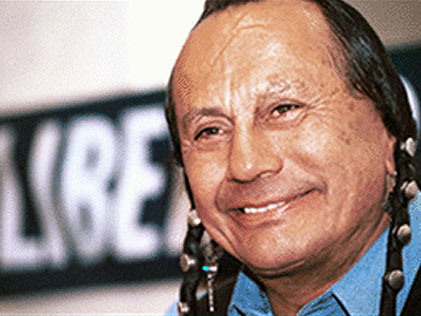Uh-Obama: Racism, White Voters and the Myth of Color-Blindness
More importantly, to the extent Obama's success has been largely contingent on his studious avoidance of the issue of race--such that he rarely ever mentions discrimination and certainly not in front of white audiences--one has to wonder just how seriously we should take the notion that racism is a thing of the past, at least as supposedly evidenced by his ability to attract white votes? To the extent those whites are rewarding him in large measure for not talking about race, and to the extent they would abandon him in droves were he to begin talking much about racism--for he would be seen at that point as playing the race card, or appealing to "special interests" and suffer the consequences--we should view Obama's success, given what has been required to make it possible, as confirmation of the ongoing salience of race in American life. Were race really something we had moved beyond, whites would be open to hearing a candidate share factual information about housing discrimination, racial profiling, or race-based inequities in health care. But we don't want to be reminded of those things. We prefer to ignore them, and many are glad that Obama has downplayed them too, whether by choice, or necessity.
In other words, American don't want uppity blacks--or Indians. That's precisely why Americans "honor" only Indians who fit comfortable stereotypes. That means Indians of the past: chiefs and "braves" who fought valiantly before they ultimately proved their secondhand status by losing. And all the warriors today--soldiers and sports mascots--who remind us that Indians were savages who had no right to exist in our white Christian culture.
When the president gives a medal to Russell Means, Winona LaDuke, or Leonard Peltier for a lifetime of activism against the interests of the white majority, then we can conclude we're in a post-racist society. Until then, no.


6 comments:
1) You've come down pretty hard on Russell Means usually, and this is kind of a positive post concerning him for a change.
2) "activism against the interests of the white majority, then we can conclude we're in a post-racist society."
Maybe not the best choice of words? Acting against the interests of one race actually sounds racist, not "post-racist"
Writerfella here --
The day that Russell Means runs for President and equally is accorded the attention that Barack HUSSEIN Obama has received, THEN maybe we might exist in a post-racist society. All that Obama is proving at this point is that he is a coconut in a post-modern US society, NOT a post-racist US society. Period...
All Best
Russ Bates
'writerfella'
Mr Means is currently the lord of the Lakotah Republic. To run for President, he'd have to come back to the United States.
Writerfella here --
Russell Means NEVER LEFT! In writerfella's episode of ALL IN THE FAMILY, "Chief in The Night,' Archie Bunker argues with a Cree silversmith about the supposed history of the USA vs. Manifest Destiny. Archie becomes so enraged that he ALMOST says, "If you don't like it here,..." but has to stop because Nathan BigHawk is the one person that Archie's favorite aphorism will notwork. The Native dude wins the day...
All Best
Russ Bates
'writerfella'
Writer: I don't recall that episode, but it sounds clever/typical. Reminds me of the complete irony of telling Native-language speakers "if you can't speak English, go back to where you came from".
I'm generally in favor of activism to change the status quo. Russell Means is an activist trying to change the status quo. Thus I support his ends if not, er, his means.
I haven't decided what kind of activism works best: writing in an ivory tower, cajoling politicians in a back room, or marching in the streets. If there were proof that one form of activism was superior, I'd be all for it. But without proof, I believe all forms of activism have their place. I think they complement and support each other.
Do you recall the incident where a Native went to England or Italy and claimed it in the name of Indians? I thought that was a great publicity stunt. I don't know if it opened anyone's mind, but it brought attention to the issues. That's about all one can hope for.
If Means had said his Lakota Freedom gambit was a publicity stunt, I would've heralded it as such. My main complaint is that he's acting as if he really has the right to declare independence for the Lakota. That's illogical and arrogant, and you (should) know how I feel about those traits.
Again, as a publicity stunt, I'd say Means's move was smart. As a legitimate act of secession, I'd say it was stupid. I trust you can see the difference.
P.S. Russ is referring to an All in the Family script that was never produced. He was probably too much of an Irwin Allen-style writer to handle a complex Norman Lear comedy.
Post a Comment